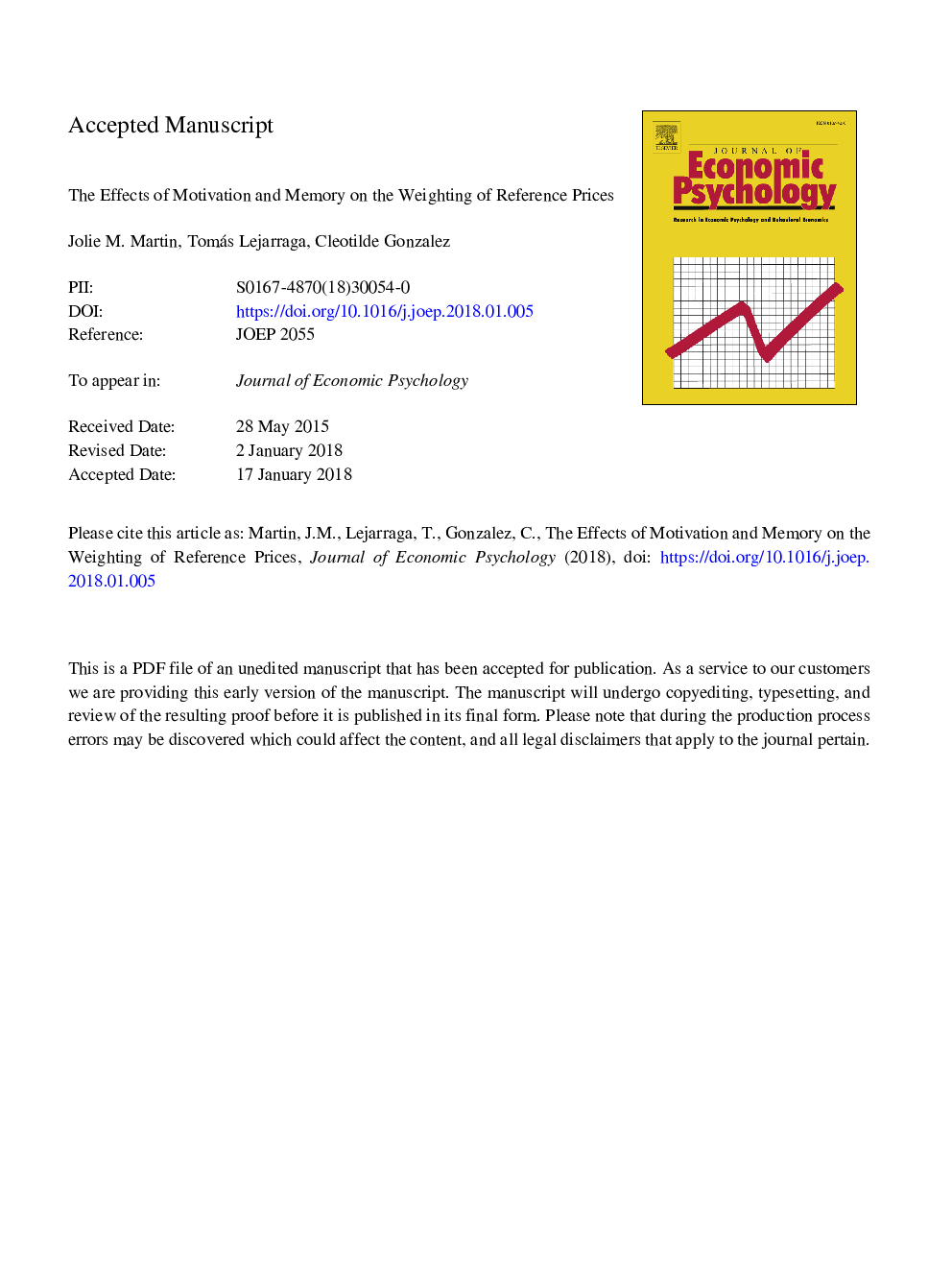| Article ID | Journal | Published Year | Pages | File Type |
|---|---|---|---|---|
| 7244012 | Journal of Economic Psychology | 2018 | 26 Pages |
Abstract
This laboratory study explores how decision makers weigh candidate reference prices for a stock differently depending on two contextual variables: (1) the motivation to adopt a high reference price as a potential seller versus a low reference price as a potential buyer, and (2) the availability of information about past prices versus reliance on memory alone. In our experiment, participants observed 60 sequences of stock prices, and after each, reported a neutral trading price at which they would be indifferent about buying or selling. We manipulated both motivation and memory in a 2â¯Ãâ¯2 between-subjects design, yielding four separate conditions where participants were assigned to the role of either buyer or seller, and had to rely more or less on memory. We tested how these variations in context affected the weight that participants put on each previously observed price in determining their neutral trading price. Our results show that the weighting of reference prices depends a great deal on contextual variables. Specifically, participant assignment to the role of buyer (rather than seller) and reliance on memory (rather than having access to historical prices) similarly increase the weighting of intermediate and recent prices, but decrease the weighting of early and high prices. This provides evidence for motivated information processing depending on role, as well as recency but not primacy memory effects.
Related Topics
Social Sciences and Humanities
Business, Management and Accounting
Marketing
Authors
Jolie M. Martin, Tomás Lejarraga, Cleotilde Gonzalez,
